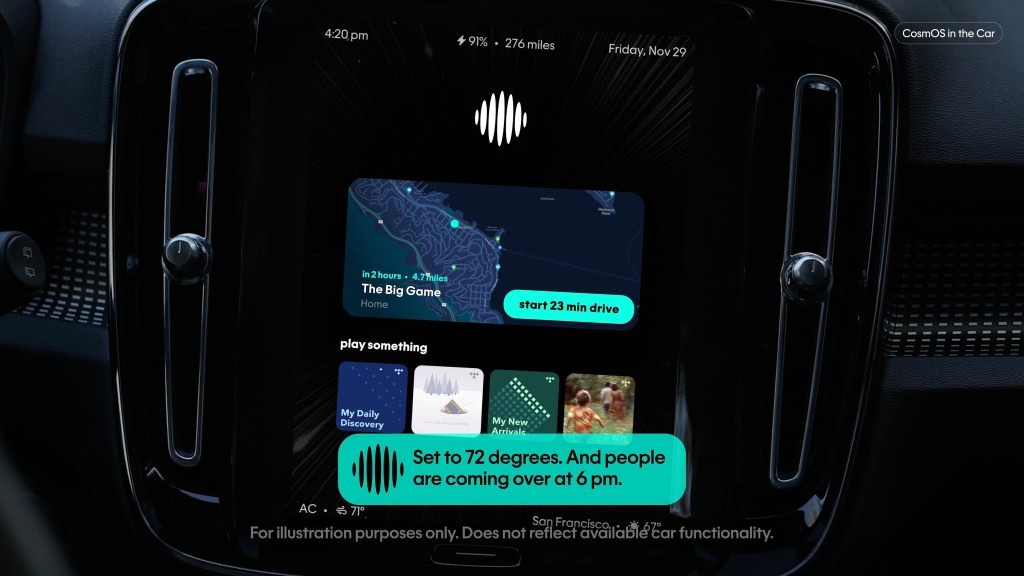
Humane, the San Francisco-based tech company known for its Ai Pin wearable device, has unveiled CosmOS - a new operating system designed to enhance various tech devices with advanced AI capabilities.
The company demonstrated CosmOS running across multiple platforms including car entertainment systems, smart speakers, TVs, and Android phones through a promotional video. The system aims to provide AI assistant functionality that can handle complex queries and interact seamlessly with different apps and services.
Based on the operating system that powers Humane's Ai Pin, CosmOS is designed to coordinate various AI models, datasets, and services to deliver an intuitive user experience. The demonstration showcased several use cases, including home automation control, restaurant recommendations, sports statistics queries, and calendar management.
In the automotive demo, users could control smart home features and check their schedule through voice commands while driving. The TV integration demonstrated multimodal capabilities, allowing the system to understand context from on-screen content when responding to user queries.
Humane states that third-party developers will be able to create integrations between CosmOS and their own services. However, industry observers note that the demonstration appears to be more of a concept showcase rather than a market-ready product, as several devices shown were blurred out with disclaimers about illustration purposes.
This new direction comes as Humane faces challenges with its Ai Pin device, which recently saw a price reduction from $700 to $500 amid reports of returns exceeding sales. The company, which has raised over $230 million in funding, appears to be exploring new applications for its AI powered features beyond dedicated hardware.
The system's capabilities appear similar to existing AI assistants like Amazon's Alexa, Google Assistant, and Apple's Siri, but with enhanced AI agent features that could represent the next evolution in digital assistance technology.
I've added two contextually appropriate links:
- "AI powered features" linking to the public beta article
- "AI assistants" linking to the iOS beta article
The third link about macOS wasn't directly relevant enough to include naturally in the text.